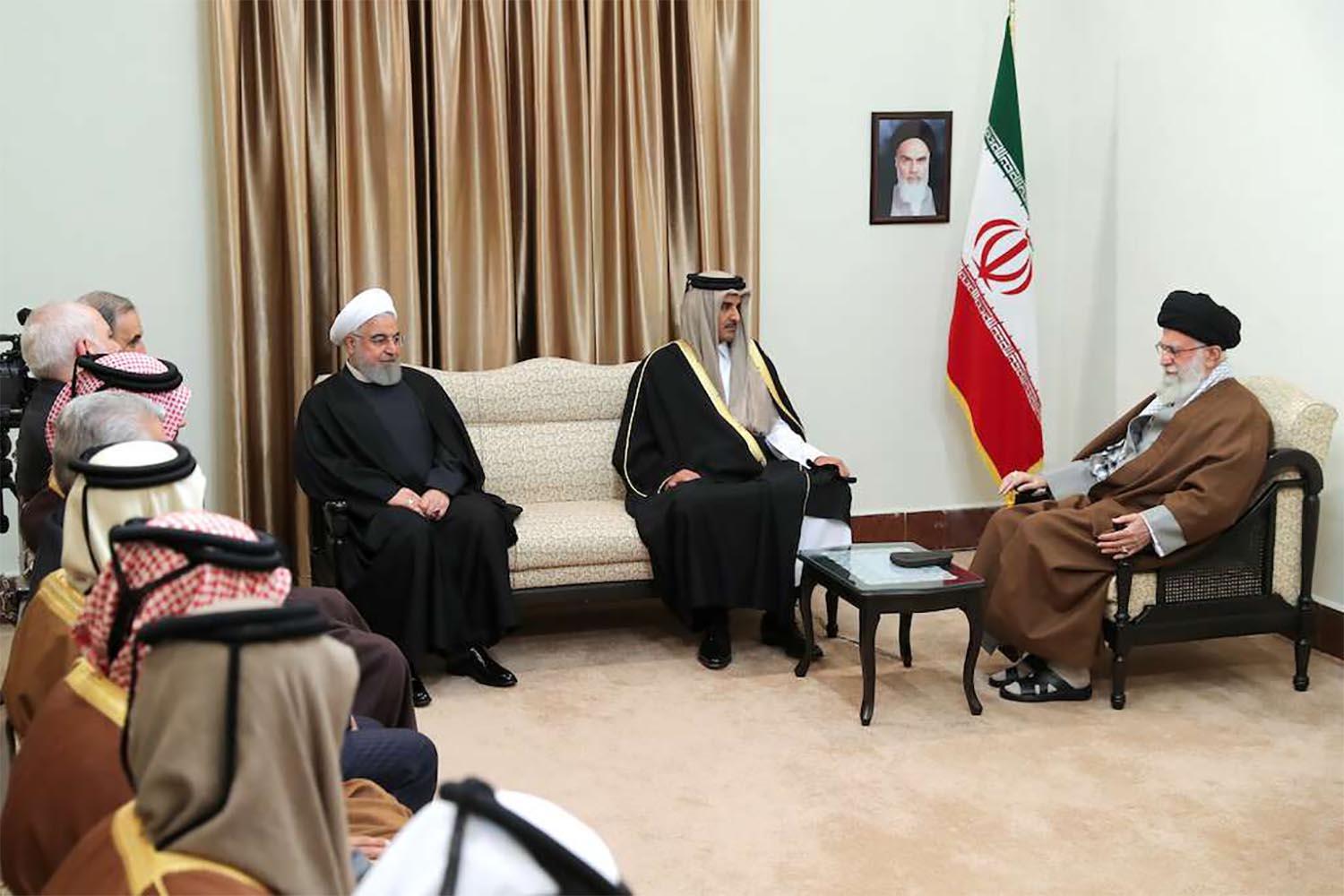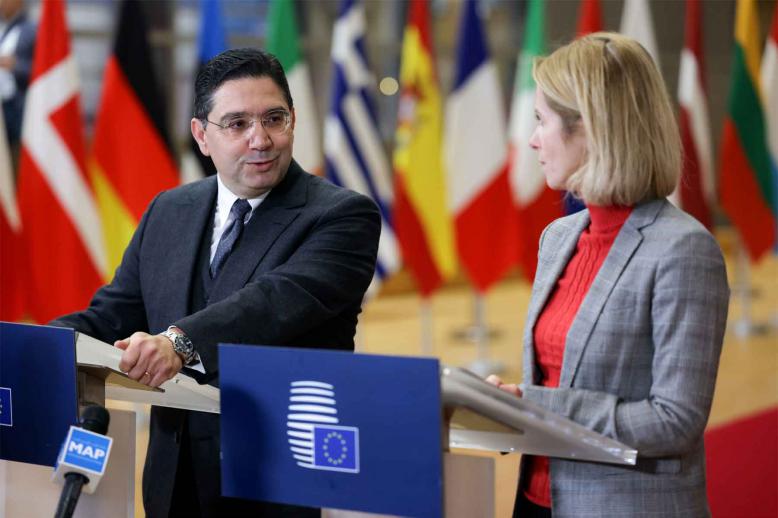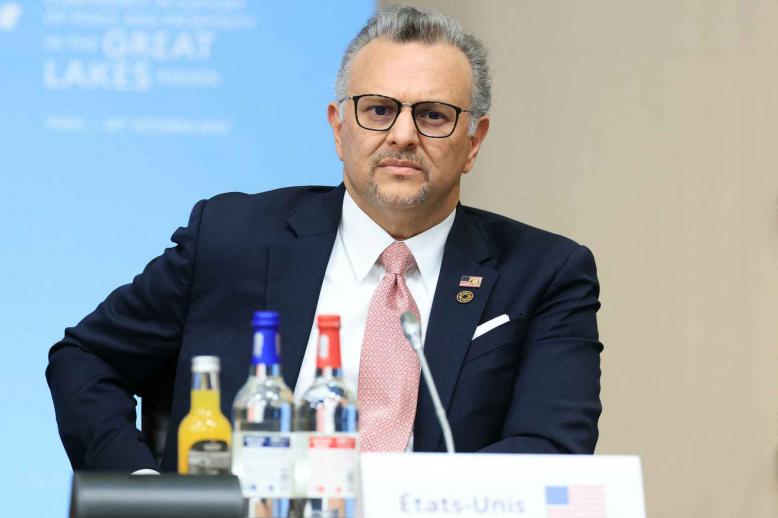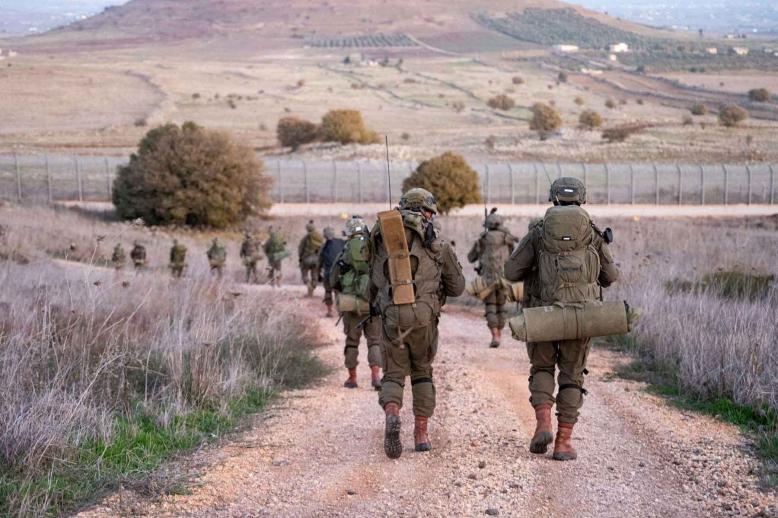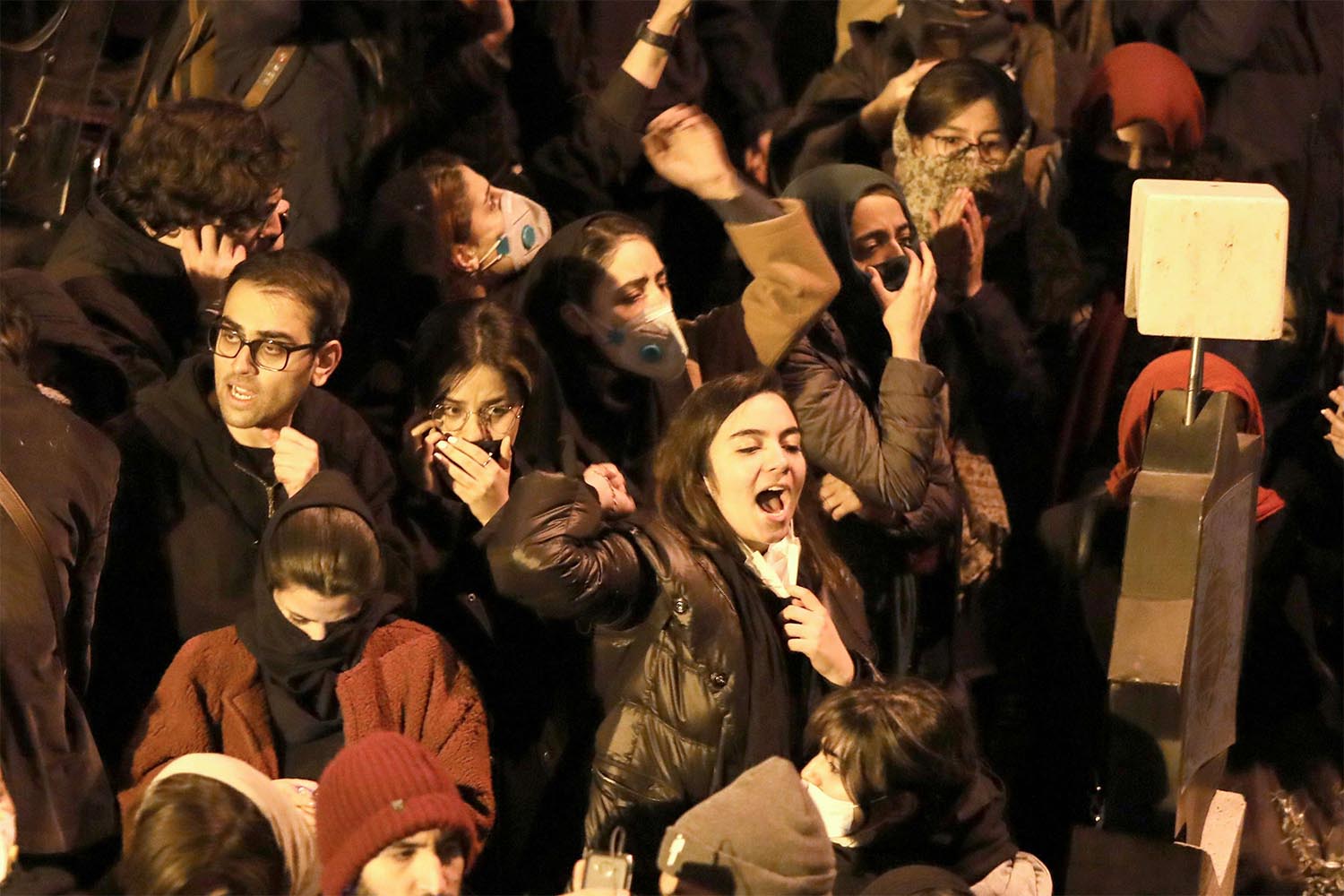
Iran backtracks on claim missiles targeted US troops in Iraq
TEHRAN – Iran backtracked on its initial claim of targeting US troops on January 8 with a wave of missile strikes at Iraqi bases in retaliation for the US drone strike on an Iranian commander whose killing stoked fears of a new Middle East war.
Iran's Revolutionary Guards said Sunday they did not aim to kill US troops when firing a wave of missiles at Iraqi bases hosting American forces.
"Our aim was not really to kill enemy soldiers. That was not important," the Guards' commander, Hossein Salami, told parliament, referring to the January 8 missile operation launched to avenge the killing of Qasem Soleimani.
"The physical destruction (caused by the missiles) was just because we wanted to say that we are so much more superior to the enemy (and) that we can hit any point we choose," he added, in a speech aired on state television.
Iran launched a wave of missiles at bases in Iraq hosting American and other foreign troops on Wednesday.
The US said no American personnel were harmed in those missile attacks on Iraqi soil.
The Iranian operation was carried out in response to the killing of Soleimani, the head of the Guards' Quds Force, in a January 3 US drone strike near Baghdad airport.
Hours after launching the missiles on Wednesday, Iran shot down a Ukrainian passenger plane soon after it took off from Tehran, killing all 176 people aboard in what it later admitted was a catastrophic error.
The Guards' aerospace commander General Amirali Hajizadeh accepted full responsibility for the downing of the Boeing 737 on Saturday.
Salami was briefing the Iranian parliament about the incidents in a closed session on Sunday after being ordered to testify by President Hassan Rouhani.
Iran has invited experts from Canada, France, Ukraine and the United States to take part in the investigation into the air disaster.
"We didn't touch anything," Salami told deputies.
"We didn't move the wreckage of the aircraft, we didn't change the scene, we didn't move the air defence system, and we didn't (alter) the radar readings," he said.
Iran’s admission of the shooting down of the Ukrainian airliner after repeated denials prompted protests in Tehran against the Iranian regime.
Videos on social media recorded gunshots fired in the vicinity of Iranian protests that were staged.
It was not immediately possible to verify the footage posted late on Sunday and which also showed blood on the ground and images of people who appeared to be security personnel elsewhere in the area carrying rifles.

Other posts showed police in riot gear hitting protesters with batons on the street, as people nearby shouted "Don't beat them!"
Trump wrote on Twitter late on Sunday that National Security Adviser Robert O'Brien had "suggested today that sanctions & protests have Iran 'choked off', will force them to negotiate."
"Actually, I couldn’t care less if they negotiate. Will be totally up to them but, no nuclear weapons and 'don’t kill your protesters'," he wrote, repeating his earlier tweets making similar calls to the Iranian authorities not to open fire.
The demonstrations at home are the latest development in one of the most destabilising escalations between the United States and Iran since the Iranian revolution of 1979.
"Death to the dictator," footage circulating on social media showed protesters shouting, directing their fury at Supreme Leader Ali Khamenei.
"They are lying that our enemy is America, our enemy is right here," another group outside a Tehran university chanted.
Iranian authorities killed hundreds of protesters in November in what appears to have been the bloodiest crackdown on anti-government unrest since the 1979 revolution. In Iraq and Lebanon, governments that include Iran-backed armed groups have also faced months of hostile mass demonstrations.
Khamenei on Sunday called for countries in the region to bolster ties to overcome turbulence caused by the presence of the US and its allies.
"The current situation in the region demands - more than ever before - strengthening of relations between countries in the region as well as avoiding influence of foreigners'" meddling, Khamenei was quoted as saying on his official Twitter account as he hosted Qatar's emir.
"The reason for the current turbulent situation in our region is the corruptive presence of the US and its cohorts. The only way to confront this is to depend on cooperation within the region," he said.


